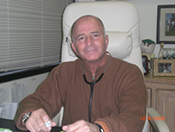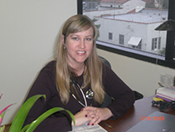By Peter S. Waldstein, M.D., F.A.A.P and Julia A. White, M.D., F.A.A.P
 In our practice the last 6 to 8 weeks, we have seen a large increase in both cases and questions about RSV. Infections caused by RSV spike every year during the winter and early spring months. Due to the recent increase in RSV activity, we thought discussion of the symptoms and treatment would be useful.
In our practice the last 6 to 8 weeks, we have seen a large increase in both cases and questions about RSV. Infections caused by RSV spike every year during the winter and early spring months. Due to the recent increase in RSV activity, we thought discussion of the symptoms and treatment would be useful.
What is RSV, and what are the signs and symptoms of infection?
RSV (respiratory syncytial virus) is a viral infection that is seen very commonly in young children. It is passed via contact with respiratory secretions or droplets of an infected person.
For most children, the infection will likely look similar to any other viral cold – runny nose, cough, congestion, and possible fever. The cough will typically worsen over the first several days often sounding very mucousy, sometimes slightly barking. Once it starts to improve, you may see a cough that lingers for around a week to 10 days.
For some infants and small children, the illness starts like a cold but it progresses into a lower respiratory tract infection called bronchiolitis. This is an infection of the bronchioles in the lung – the airways between the largest (bronchi) and smallest (alveoli) airways in the lungs. Not all children infected with RSV will develop full blown bronchiolitis. Your pediatrician will be able to determine the extent and severity of the infection by doing a physical examination and assessment. When bronchiolitis does happen, wheezing may occur. In more severe cases of bronchiolitis, the child may start to show signs of respiratory distress. These including breathing much faster than normal, nasal flaring with each breath, retractions of the chest/rib cage, and grunting. The child may also start refusing fluids, or may not be physically able to take the fluids due to the
respiratory distress.
What is the treatment of RSV?
 Treatment for RSV depends on severity. If a child only has symptoms of cough and congestion, it is treated as any other cold with supportive treatments which may include nasal saline with suction or a humidifier. If your pediatrician detects bronchiolitis and wheezing, he or she may do a trial of a nebulized medicine called albuterol. This bronchodilator may or may not help your child, as it is not always effective with RSV. Should a child develop respiratory distress from the bronchiolitis, oxygen may be needed to support the child until the virus improves. Finally, intravenous fluids may be needed if fluid intake is impaired due to the respiratory status. Steroids or antibiotics are not
Treatment for RSV depends on severity. If a child only has symptoms of cough and congestion, it is treated as any other cold with supportive treatments which may include nasal saline with suction or a humidifier. If your pediatrician detects bronchiolitis and wheezing, he or she may do a trial of a nebulized medicine called albuterol. This bronchodilator may or may not help your child, as it is not always effective with RSV. Should a child develop respiratory distress from the bronchiolitis, oxygen may be needed to support the child until the virus improves. Finally, intravenous fluids may be needed if fluid intake is impaired due to the respiratory status. Steroids or antibiotics are not
useful or indicated in the treatment of RSV unless there is a secondary bacterial infection.
How do you prevent RSV?
Prevention for most adults and children includes your usual prevention methods of hand washing and avoidance of contact with those infected. Most all children are eventually exposed to RSV at some point during early childhood, usually by the age of 2. For some young children with a history of significant prematurity, congenital heart disease, chronic lung disease, and some other significant disorders a vaccine prophylaxis is
indicated. Your pediatrician would be able to tell you if your child qualifies for the
Synagis vaccine, which is given monthly during RSV season. It is only indicated for these children with significant health issues.
When it is important to call your pediatrician:
Your child should be evaluated any time you notice a significant cough to make sure there are no lower respiratory tract infections. If your child has RSV, it is important to look for the signs of respiratory distress. Should he or she have fast breathing,
retractions in the chest, nasal flaring, grunting or worsening overall symptoms you should call your pediatrician right away or proceed to the ER. As in any situation, should your child have true difficulty breathing, you should call 911 for a medical
emergency. As always, your pediatrician is your best and most reliable source for any questions regarding your child’s health.
For more information about this topic you can visit http://www.healthychildren.org
http://www.cdc.gov/rsv/
Dr. Peter S. Waldstein is a Clinical Assistant Professor of Pediatrics at UCLA. Dr. White and Dr. Waldstein are both Attending Physicians at Cedars Sinai Medical Center with a private practice in Beverly Hills.
